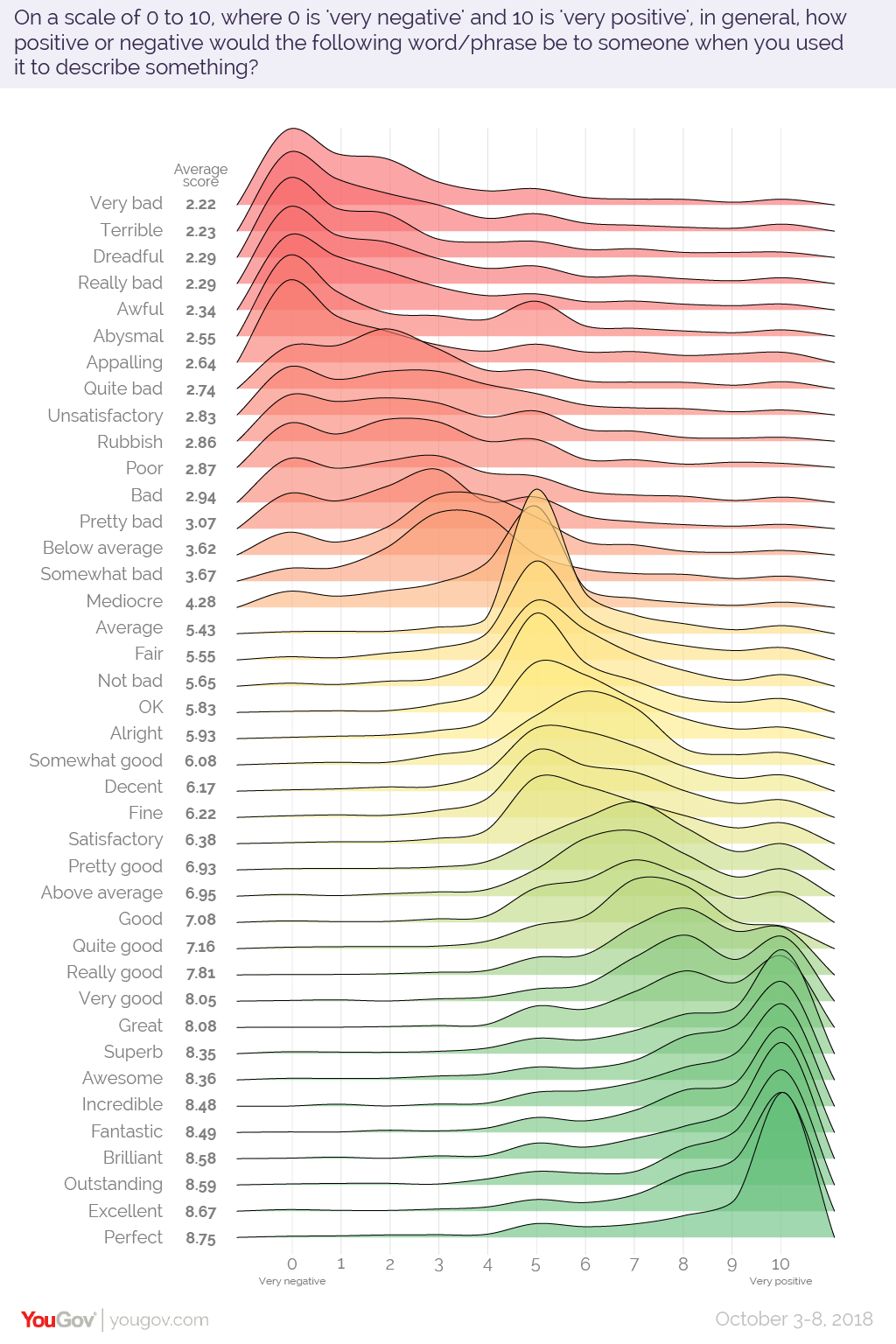For world leaders, journalists, CEOs, or anyone who has ever had to explain a dicey report card, word selection can have an enormous impact on how a message is perceived.
Does it make any difference whether a presentation went quite good versus pretty good, or if an earnings report is described as awful versus poor? As Visual Capitalist’s Nick Routley explains, according to a new survey from YouGov, word sentiment isn’t as cut-and-dry as one would expect.
THE UNITED STATES OF SENTIMENT
Certain words more precisely communicate positive and negative feelings.
Interestingly, very bad edges out words like abysmal and dreadful as the most conclusively negative phrase for those survey respondents based in the United States.
Courtesy of: Visual Capitalist
On the positive end of the spectrum, perfect was most conclusively positive term.
EFFECTIVE WORDS: U.K. EDITION
The version of the survey conducted in the United Kingdom reveals interesting differences in how words are perceived.
In the U.K. visualization, words have a more defined “hump”, meaning that people tended to agreed on where each word fell on the 10-point scale. As well, there appears to be more mutually agreed upon nuance. The U.S. results showed less agreement on words that weren’t on the extreme ends of the sentiment spectrum.
In both regions, the word average was nearly dead-center on the graph and had the highest percentage of people agreeing on its score.
QUANTIFYING LANGUAGE
It’s human nature to attempt to tame complexity and bring order to chaos. Language, with its fluidity and openness to interpretation, has always presented a tempting challenge.
To this end, researchers have developed lists that ascribe a sentiment score to specific words. Using data mining techniques, it’s possible to gauge the tone of a piece of writing.
One compelling example of this is a project by data analyst, Susan Li, who ran a sentiment analysis on Warren Buffett’s annual shareholder letters, and found that the majority of the letters had a positive tone.
The one outlier? 2001, which was a challenging year for a number of reasons.
As these techniques continue to evolve, we are likely to better understand why one person’s abysmal is another person’s very bad.
via RSS https://ift.tt/2DrgAnJ Tyler Durden


